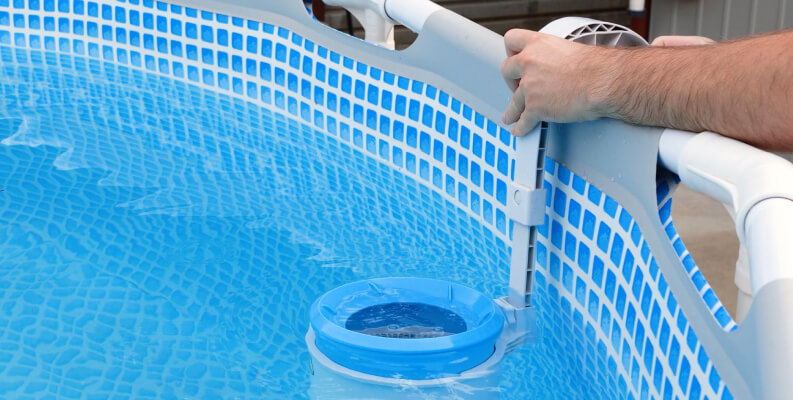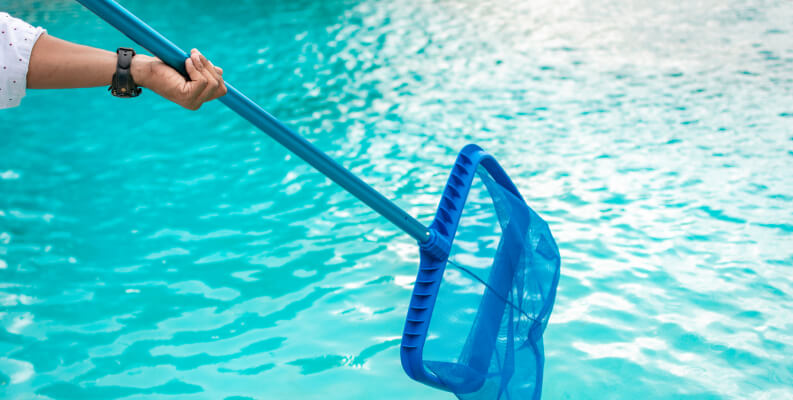Understanding the chemistry behind pool maintenance is key to ensuring your pool remains clean, safe, and enjoyable for everyone. Balancing the chemicals in your pool isn’t just about keeping the water clear; it’s also essential for protecting your equipment and ensuring swimmer health. Let’s dive into the basics of pool chemistry and why it’s so important.
1. The Role of pH Levels
The pH level measures the acidity or alkalinity of your pool water, ideally ranging between 7.2 and 7.8. When pH is too low, the water becomes acidic, which can damage pool equipment and cause irritation for swimmers. If it’s too high, the water becomes basic, which can lead to cloudy water and scaling on pool surfaces. Maintaining the right pH balance is crucial for swimmer comfort and overall water clarity.
2. Importance of Chlorine and Sanitizers
Chlorine is the most common sanitizer used in pools due to its ability to kill bacteria and other harmful organisms. Proper chlorine levels (usually between 1 and 3 ppm) ensure your pool stays safe and hygienic. However, too much chlorine can cause eye and skin irritation, while too little can allow harmful bacteria to flourish. Keeping chlorine levels balanced prevents both health risks and pool water clarity issues.
3. Alkalinity and Stabilizers
Total alkalinity (TA) acts as a buffer for pH levels, helping to keep them stable. It prevents rapid pH fluctuations, making the water chemistry easier to manage. Stabilizers, like cyanuric acid, are particularly important in outdoor pools as they protect chlorine from being degraded by UV rays. These elements work together to ensure your pool water remains balanced, especially during high-use seasons.
4. Controlling Calcium Hardness
Calcium hardness affects the overall quality of your pool water and the integrity of pool surfaces. Low calcium levels can lead to corrosive water, which damages surfaces and equipment. On the other hand, high calcium levels cause scaling and cloudy water. Keeping calcium hardness in check helps extend the life of your pool and ensures clear, inviting water.
5. Routine Testing and Adjustments
Maintaining balanced water chemistry requires regular testing. Pool chemistry can change due to factors like rain, pool usage, and temperature, so testing your pool water at least once a week is essential. Regular monitoring allows you to make timely adjustments and keep all chemical levels in the ideal range.
Perfect Pool Chemistry for a Better Swimming Experience
Mastering pool chemistry is an essential part of pool ownership. Balanced water not only enhances the swimming experience but also protects your pool, equipment, and most importantly, the health of those who use it. At Pool2Clean, we specialize in water treatment services that include testing, balancing, and expert chemical adjustments. Let us handle the science, so you can enjoy your pool with complete peace of mind.








